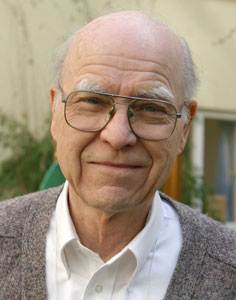Recently, a Christian brother published a “sympathetic critique” of Darrow’s book Discipling Nations. He raised issues about Disciple Nations Alliance teaching that have been noted by others from time to time. Because of that, and in the spirit of a free exchange of ideas, we offer here, in six parts, our brother’s critique and Darrow’s response. editor
Second, his [Darrow Miller’s] depiction of how cultural transformation actually occurs is confusing. On the one hand, he stresses the role of ideas and criticizes the pessimistic and rudimentary “last days evangelicalism” (72) and “diluted pietism” (73) in the church today. He also declares: “The gospel is much more than evangelism.” Yet, he often repeats the notion that societies change “one person at a time” (74) as they are converted. (See also 22, 136, 191, 271). However, is cultural change a mathematical formula based on true belief? Can social progress be equated with conversions? There are examples in history and “Christian” countries today, like Guatemala and the United States, that belie this idea. Miller knows this, of course, but his text is not clear.
~
I am enjoying interacting with your questions and concerns. Here’s my response to the second weakness you see in Discipling Nations, that is, my “depiction of how cultural transformation actually occurs is confusing.”
I am sorry for the confusion. I mentioned in the first blog response that I have learned many things since I first wrote the book. One of those things deals with the weakness you have articulated.
 Perhaps the best piece I have read that deals clearly with this issue is by the renowned missiologist Dr. Ralph Winter. In 2007, shortly before he died, Dr. Winter penned perhaps his seminal piece, “The Future of Evangelicals in Missions: Will We Regain the Vision of our Forefathers In the Faith?” In this he make a distinction between two kinds of evangelicals.
Perhaps the best piece I have read that deals clearly with this issue is by the renowned missiologist Dr. Ralph Winter. In 2007, shortly before he died, Dr. Winter penned perhaps his seminal piece, “The Future of Evangelicals in Missions: Will We Regain the Vision of our Forefathers In the Faith?” In this he make a distinction between two kinds of evangelicals.
It would seem helpful to distinguish between First-Inheritance Evangelicalism and Second-Inheritance Evangelicalism (my terms). For this article we can define … the First as that which was characterized by a broad dual social/personal spectrum of concern ranging from foreign missions to changing the legal structure of society and even war. The Second Inheritance focused mainly on the personal.
Personal and social application of the cross
First-Inheritance Evangelicals worked from a biblical worldview that was comprehensive and wholistic in its application. This led to the first Great Awakening. Wesley exemplified this. He preached Christ crucified for salvation but argued that true revival would be followed by reformation, a change in society stemming from consequential conversions. In other words, the cross has both a personal application and a social application. The Second Inheritance Evangelicals, working from the sacred/secular divide (what I call Evangelical Gnosticism), preached the gospel of personal salvation. They were interested in revival, but not necessarily in the reformation of society.
I wish I had had this language when I first wrote Discipling Nations. Perhaps I would not have created the confusion that you perceived.
You go on to write, “However, is cultural change a mathematical formula based on true belief? Can social progress be equated with conversions?”
The answer to the first part of your question is emphatically NO! We are proudly First Inheritance Evangelicals and do expect that the cross has both personal and social implications. But there is no formula. Churches today need to have the expectations of the First Inheritance Evangelicals, not the Second Inheritance.
Discipleship includes social impact
When people come to Christ through evangelism, they need to be discipled. The discipleship needs to take place on two levels. The first is the personal level of the “spiritual disciplines,” i.e. to read the word of God, to pray, to fellowship with believers and to share the gospel.
But a second level of discipleship has implications for the social impact of the gospel. This is discipleship at the level of culture. I would argue that this is the discipleship of the gospel penetration of culture as we find in Matthew 28:18-20. I will say more about this later.
Culture at its most basic level is a product of “cult” – worship. In scripture we are told that we become like the God or gods that we worship (e.g. Ps 135:17-18; Is. 44: 9-20).
Theologian Henry van Til has stated this as clearly as anyone: “culture is religion externalized.” Or to say it differently, culture is the outworking of a people’s faith. When people come to Christ, they are leaving their pagan god behind, be it a local idol or money, and are turning to the living God. His character is different from the nature of pagan gods. As the focus of our worship–cult– changes, so too there should be a change in culture. As an example, most pagan gods can be bribed. This leads to a culture of corruption. The living God “shows no partiality and accepts no bribes.” The worship of the living God should lead to a culture of justice.
 Ken Meyers, journalist and graduate of Westminster Seminary explains it this way at Mars Hill Audio:
Ken Meyers, journalist and graduate of Westminster Seminary explains it this way at Mars Hill Audio:
Discipleship is not engaging with another culture to present a small set of new propositions. Rather, discipleship is a work of alternative enculturation – to present a new way to understand life and the world in which we live, that is, a new way to understand ‘what is real’. And this new way of understanding life is incarnated in alternative cultural forms that are sustained across generations and, when possible, shared with our neighbors.
If Jesus is Lord, what does that change?
Missionary statesman Lesslie Newbigin put it this way:
A preaching of the gospel that calls men and women to accept Jesus as their Savior but does not make it clear that discipleship means a commitment to a vision of society radically different from that which controls our public life today must be condemned as false.
In short, evangelism and conversion should lead to a change in society. We have seen this exampled in the transforming of nations in Europe that took place following the Reformation. Later in England, Wesley’s preaching led not only to tens of thousands of people coming to Christ, but within a generation England was a radically different country. See “England Before and After Wesley.”
The spiritual children of Wesley formed the Clapham Sect. God used this dedicated group of Christian politicians, businessmen, artists, newspaper men, pastors, and bankers, working together for over 40 years, to end slavery and to “civilize” pagan England. For this story see Eric Metaxa’s book Amazing Grace.
Then there is Hans Nielsen Hauge, a farmer, evangelist and businessman whom God used to lead the transformation of Norway. A short essay by Sigbjørn Ravnåsen, “Hans Nielsen Hauge, his ethics and some consequences of his work” can be found on the Disciple Nations website.
We must not fail to mention the transformation of Korea in 50 years by the impact of the gospel. In his paper, “Transformation: from Poor to Blessed,” missiologist Luis Bush reveals this remarkable story.
I hope this has cleared up some of the confusion and has provided some historic examples of what God has done in history through Christians and the Bible to bring transformation of societies. By God’s grace, this can happen in your country as well.
Thanks again for the opportunity to respond to your concerns.
- Darrow Miller







2 Comments
Beth Snodderly
March 10, 2018 - 10:41 amAs the editor for the Ralph D. Winter Research Center, I appreciate seeing Winter’s important article brought back to the attention of the mission world. I plan to post it on http://www.rdwresearchcenter.org .
It seems like we are now living in another era of “evangelicalism” that calls into question both the personal and social change. I see “evangelicals” perfectly happy with behavior at the top level of our society that Jesus condemned. I see “evangelicals” on the side of ignoring the need for gun safety in the US. I see “evangelicals” trying to use politics to enforce their moral standards, such as being anti-abortion, without regard for what would change the heart of a person inclined toward abortion. (Love? Loving deeds?) I do NOT see “evangelicals” standing up for the “stranger in our midst”—a key value in Scripture. “The Bible has a lot to say about immigrants and immigration” http://welcomingthestranger.com/wp_welcoming/learn-and-discern/scripture-and-immigration
Now that we no longer have Ralph Winter to interpret history and current trends for us, I guess we have to do it for ourselves. I, for one, am ashamed by what I see non-Christians saying about “evangelicals” in public forums. They know what we should be standing for, and they pretty much see the opposite. Whatever discipleship has happened in America, it’s being whittled down to those who are willing to actually think and do what Jesus would do. It’s a narrow gate.
admin
March 13, 2018 - 6:40 amGood Morning Beth
Thank you for your thoughtful response. Yes, Ralph’s article was very important message for the church today. We at the DNA have always followed Dr. Winter and found his writing and insights so important. And none more so than this last piece. Thank you for your re-posting of our blog. Hope you are finding this series of posts to be helpful. They reveal the heart of the Disciple Nations Alliance.